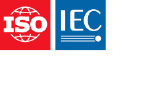Тезис
This part of ISO/IEC 13211 is designed to promote the
applicability and portability of Prolog modules that contain
Prolog text complying with the requirements of the Programming
Language Prolog as specified in this part of ISO/IEC 13211.
This part of ISO/IEC 13211 specifies:
a) The representation of Prolog text that constitutes a Prolog
module,
b) The constraints that shall be satisfied to prepare Prolog
modules for execution, and
c) The requirements, restrictions and limits imposed on a
conforming Prolog processor that processes modules.
This part of ISO/IEC 13211 does not specify:
a) The size or number of Prolog modules that will exceed the
capacity of any specific data processing system or language
processor, or the actions to be taken when the limit is
exceeded,
b) The methods of activating the Prolog processor or the
set of commands used to control the environment in which
Prolog modules are prepared for execution,
c) The mechanisms by which Prolog modules are loaded,
d) The relationship between Prolog modules and the
processor-specific file system.
1.1 Notes
Notes in this part of ISO/IEC 13211 have no effect on the
language, Prolog text, module text or Prolog processors that are
defined as conforming to this part of ISO/IEC 13211. Reasons
for including a note include:
a) Cross references to other clauses and subclauses of this
part of ISO/IEC 13211 in order to help readers find their
way around,
b) Warnings when a built-in predicate as defined in this part
of ISO/IEC 13211 has a different meaning in some existing
implementations.
Общая информация
-
Текущий статус: ОпубликованоДата публикации: 2000-06Этап: Подтверждение действия международного стандарта [90.93]
-
Версия: 1
-
Технический комитет :ISO/IEC JTC 1/SC 22ICS :35.060
- RSS обновления
Жизненный цикл
-
Сейчас
ОпубликованоISO/IEC 13211-2:2000
Стандарт, который пересматривается каждые 5 лет
Этап: 90.93 (Подтверждено)-
00
Предварительная стадия
-
10
Стадия, связанная с внесением предложения
-
20
Подготовительная стадия
-
30
Стадия, связанная с подготовкой проекта комитета
-
40
Стадия, связанная с рассмотрением проекта международного стандарта
-
50
Стадия, на которой осуществляется принятие стандарта
-
60
Стадия, на которой осуществляется публикация
-
90
Стадия пересмотра
-
95
Стадия, на которой осуществляется отмена стандарта
-
00

